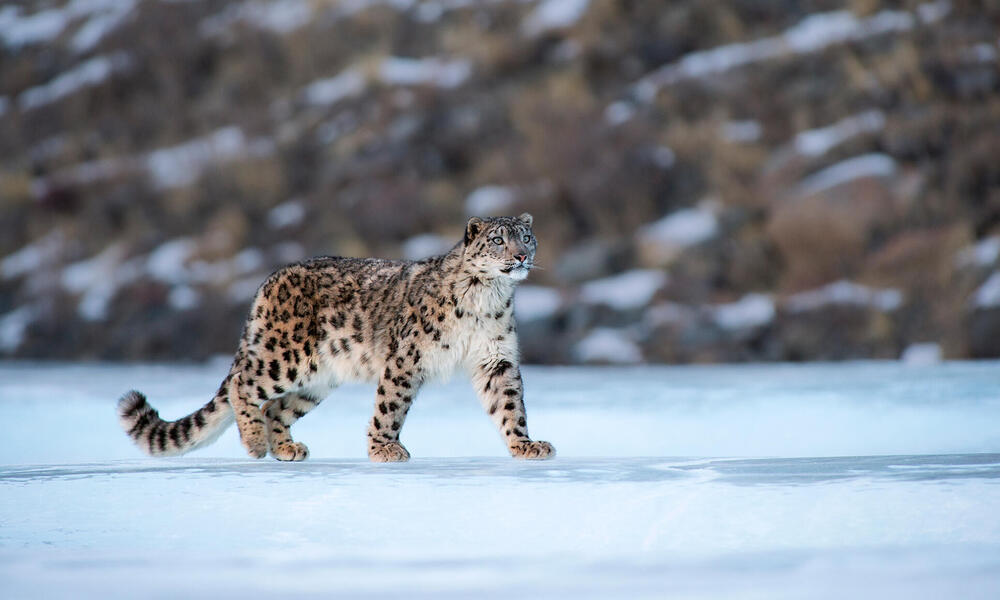
Snow leopards, also known as "ghosts of the mountains", weight about 60-120 pounds and are about 2-5 feet long. Their scientific name is panthera uncia. Their long tails provide balance and make them more agile. They also use it to protect themselves from the cold.
Snow leopards generally live in high mountain ranges. The pattern and color of their fur helps them blend into the environment. They can be found in the mountain ranges of Afghanistan, Bhutan, China, India, Kazakhstan, Kyrgyz Republic, Mongolia, Nepal, Pakistan, Russia, Tajikistan, and Uzbekistan. In total, they cover an area of about 772,204 square miles, and around 60% of this is in China. Despite knowing all of this, close to 70% of snow leopard territory remains unexplored. They live in the mountains because they had plenty of their prey, which includes blue sheep, Argali wild sheep, ibex, marmots, pikas and hares.
The endangerment status of snow leopards is "vulnerable", according to World Wildlife Fund. Population density can range from less than 0.1 to 10 or more individuals per 38.6 square miles, depending on prey densities and habitat quality. The population of snow leopards is decreasing rapidly.
Humans are the sole predator of snow leopards. For a long time, snow leopards have been hunted because their beautiful fur is very valuable on the black market. Their bones and other body parts are also used in some medicines. The illegal trade has been recently increasing, thanks to market demand. Aside from this, many snow leopards are killed by farmworkers and and herders because they often prey on livestock such as sheep, goats, and horses. Their normal prey includes animals like blue and Argali sheep, but due to the fact that these are being hunted by local communities, snow leopards are forced to hunt farm animals. Snow leopards are also endangered because of climate change. Rising global temperatures affect their habitat and their prey, which in turn affects them.
Some ways to help include:
| Adopt a Snow Leopard - WWF |
|---|
| Join Our Activist Network - WWF |
| And finding other organizations to donate to! |
